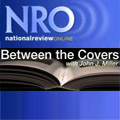
 Rings, Swords, And Monsters: Exploring Fantasy Literature
Rings, Swords, And Monsters: Exploring Fantasy Literature
Lectures by Professor Michael D.C. Drout
7 CDs & Book – 7 Hours 51 Minutes [LECTURES]
Publisher: Recorded Books LLC / The Modern Scholar
Published: 2006
ISBN: 1419386956
Themes: / Non-Fiction / Lectures / Fantasy / J.R.R. Tolkien / Middle Earth / Beowulf / Children’s Fantasy / Arthurian Legend / Magic Realism / World Building /
“It used to be that fantasy was a boy’s genre and that was clear even back through the 80s and 90s, that 90% of your audience for fantasy literature, 90% of your audience for Tolkien was male. That is no longer the case. When I give lecturings [sic] at gatherings of Tolkien enthusiasts the crowd is easily 50-50 male female and often times more female than male – though I will have to say that many of the women in the crowd are wearing elf-princess costumes – I’m not really sure what that means.”
-Lecture 13: Arthurian Fantasy (on the ‘Marion Zimmer Bradley effect’)
Most of this lecture series is concerned with Tolkien. Drout explains what influenced Tolkien’s fiction, how his work impacted Fantasy and how later writers reacted to and imitated him. A full five of the 14 lectures are on Tolkien’s books proper, with another four on what influenced him, and who he influenced. The scholarship here is absolutely engrossing, hearing Drout tease out details from names, the structure and the philosophy of Tolkien’s The Lord Of The Rings, The Hobbit and The Silmarillion will delight any Tolkien fan. At one point in Lecture 4 Drout explains the sources for the names of both the 13 dwarves of The Hobbit and Gandalf too. According to Drout, Gandalf was originally named “Bladderthin.” But this isn’t just scholarship here, Drout is very much a critic, a fan of the works he studies. He gives a critical examination of plots, themes and the worlds of each of the Fantasy novels he talks about. Drout dissects Ursula K. Le Guin’s Earthsea books, calling them possibly the best Fantasy since Tolkien, on the one hand and also shows what doesn’t quite work in them. Drout, like Tolkien is an scholar of Anglo-Saxon so there is also plenty of talk about Beowulf and the impact it had on Tolkien. In fact, central to many of his arguments is the linguistic background each work of Fantasy makes use of. Tolkien works so well, argues Drout, in part, because it all hangs linguistically together. Stephen R. Donaldson’s The Chronicles Of Thomas Covenant, which Drout thinks immensely prominent in post-Tolkien Fantasy, doesn’t have a cohesive linguistic bedrock, and that hurts the series – which he thinks is otherwise one of the best realized “secondary worlds” created. Whatever it is Drout talks about, he backs up his critical opinion. Terry Brooks’ Shannara series, he’s read them, and has dissected the plots to show how as time has gone by and Brooks has written more, he’s come to have something of his own voice, and not just stayed the pale Tolkien imitator he started as.
The lectures on Tolkien inevitably lead to the Narnia books by C.S. Lewis. Drout gives them their due, and shows why some of it works and some of it doesn’t. Arthurian Fantasy, which predates Tolkien, seems to have run a parallel course to “secondary world” fantasy literature. After hearing Lecture 13 you’ll come away with a desire to find a copy of T.H. White’s The Once and Future King and Mary Stewart’s Merlin series. My own opinion is that Drout gives too much credit to J.K. Rowling and her Harry Potter novels, he talks about her writing for about 8 minutes. In fairness it would probably not be possible to talk about Children’s Fantasy literature without mentioning her popular series. But on the other hand there are many different kinds of Fantasy that Drout doesn’t talk about at all. I wonder why Neil Gaiman isn’t mentioned. What of Robert E. Howard? And why almost no talk about short stories? James Powell’s A Dirge For Clowntown needs some attention! The only solution is for Recorded Books to go back and ask for more from this professor. Call it Gods, Barbarians, and Clowns: Further Explorations Of Fantasy Literature or something. Until then I’ll be working on my Cimmerian-clown costume.
Posted by Jesse Willis

 The City & The City
The City & The City







